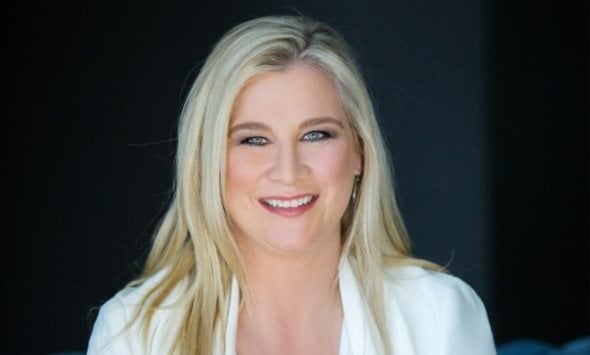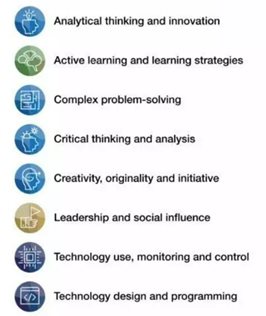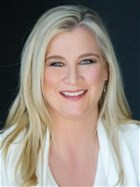
Top stories





Marketing & MediaWarner Bros. was “nice to have” but not at any price, says Netflix
Karabo Ledwaba 1 day

More news

Logistics & Transport
Maersk reroutes sailings around Africa amid Red Sea constraints

















These dynamic changes in the marketplace drive the continued focus on being adaptive and the increased value creation for your clients. The necessity to think differently about the people in your business has become a non-negotiable.
A human-centric approach is a must - this includes every human in your ecosystem, not only the employees.
Business leaders often openly share their confidence in the strategic focus of the business areas, also the analysis of forecasting, business results and profits. They do, however, need more guidance when it comes to designing the culture and the people-side of their businesses. This is where HR expertise is vital by contributing and making a meaningful impact on the overall success of the business.
The simplest way to define a TMP is to think of mobility: internal as well as industry or sector mobility. HR teams need to understand the power of not looking for talent externally alone. They need to be deliberate in building strategic partnerships to create a common talent marketplace – which will connect employees to opportunities in their organisation. This is a critical element that many businesses seem to miss.
HR teams and leaders must increase managers’ visibility to skillsets in the business and allow them the freedom to connect with employees across the different functions.
A Harvard Business School report found that 60% of businesses borrow different skill sets from other organisations instead of recruiting new employees. This way of working, where businesses borrow or ‘rent’ colleagues with specific skills sets on an as-needed basis is becoming popular. Instead of appointing permanent new employees, they either make use of talent marketplace agreements or the gig economy.
A recent example is the digital marketing exchange programme between Unilever and Vodaphone. Expect to see more of these talent marketplace exchange programmes in 2022.
The virtual way of working needs to be taken to the next level. Leaders and HR managers by now understand that the hybrid workplace is here to stay and they need to find new ways to connect to the team to ensure all feel supported. This should be a priority for HR teams in 2022 and beyond.
Teams need the tools and flexibility to work, connect, and collaborate virtually to achieve the overall business goals. We know that a “one size fits all” approach is not an option anymore. We do see that business leaders understand that different hybrid working rules will apply to different parts of the business. They also appreciate that the future work will remain in a virtual rather than a physical space.
A global trend is to differentiate between what is temporary and what is transformative of nature. McKinsey refers to the broad adoption of remote processes as a “tele-everything” trend. This emerges into more than just an increase in remote processes but enhances and rethinks how tasks can be performed more efficiently with the use of technology.
Research by McKinsey has shown that a positive employee experience increases business performance by 1.3 times! This research was done before the start of the pandemic and the importance and impact of the employee journey have increased substantially.
We see many team members boomerang back to previous employers. By building a loyal workforce are vital to support this notion. The ability to turn every employee touchpoint into a memorable moment is, therefore, more pressing.
A design thinking approach, using an empathy map, is critical to get a good understanding of what an employee is experiencing in important moments e.g performance management conversations and every day interactions. The emphasis to co-create impactful employee experiences will result in a good return on investment in 2022.
It has been proven: Collective intelligence always trumps the individual’s intelligence. We can achieve so much more together, than alone, therefore, diversity has a wide application.
The days where diversity means different age groups or gender is the outdated way. New-age diversity includes thinking styles, formal and informal studies, sector experience, to name a few.
Managers need to be accountable to create a sense of belonging in their teams. A current reality remains the five different generations in the workplace, which is why leaders need to be deliberate in the design of an effective employee value proposition.
Building a culture of inclusion and belonging doesn’t happen overnight. Managers may have the motivation and intention to create an environment of belonging, but do they have the knowledge and skills to do so?
HR teams need to enable managers with the necessary skills, knowledge and training for the future of work. For example, having the capability to balance artificial harmony and “conflict” through healthy conversations are critical in the workplace – even more so in this hybrid world where there will mostly be a person on a screen in a physical meeting. Also, the ability to use storytelling to create a culture of belonging will make a significant impact.
Another skill to coach (not tell) teams, which is a necessity in the knowledge worker economy, is the art of asking questions. So, instead of giving your team the answers, ask questions to enable them to discover insights which will lead to the solutions.
Gone are the days to think of these as “soft skills”. Leadership and social influence are in the top 10 critical skills listed by the World Economic Forum (WEF). These skills are crucial in building winning cultures.
WEF also estimates that half of all employees need to be reskilled by 2025 – that’s around the corner! The realities of working whilst being at home have closed the gap for technology adoption, yet the skills gap continues to be a key focus in 2022.
Depending on the industry, reskilling can take a few months. Some experts have expressed that managers have unrealistic expectations that individuals need to reskill in their current job function. Reskilling must be supplemented by an online learning component. The adoption of online spaced learning has fast-tracked some learning opportunities and HR teams need to build on the on-time, on-demand type of learning.

Final thoughts
The Chief People Officer (HR) needs to lead the way and support the Exco and their teams to increase personal agility.
Self-leadership is an emergent skill and if we want to build resilient, high-performing teams we must get real about “being human” at work.
Business agility starts with a change in mindset. With the increased focus on the well-being of employees, many businesses are introducing life coaching as a personal development option. This indicates that the business supports colleagues from a “total person” perceptive – by not only focusing on career development but also incorporating well-being and personal goals.
Applying the latest neuroscience to increase your own and your team’s high-performance readiness is a no brainer. Lead by example; share your insights with the business. This is a gift and an important building block in the human-centric focus required to thrive in the future of work.
